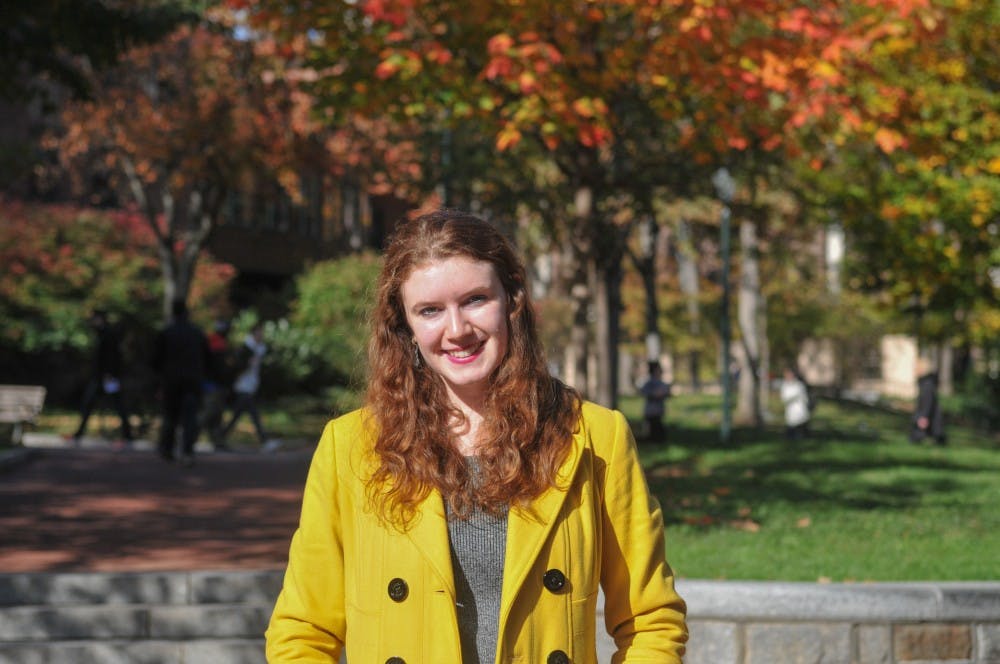Before stepping foot on campus, students in the College already have two advisors: a pre-major advisor and a peer advisor.
However, these advisors are not assigned according to students’ intended majors, often leaving freshmen to turn to other sources for advice on their interests. The Major Advising Program is one way that students in the College of Arts and Sciences can find appropriate mentors for their specific interests.
MAP allows students to find peer advisors within a certain major on an online database. These advisors are upperclassmen who apply to the program to share their knowledge with students looking to navigate Penn academics. While various advisors say that only a few underclassmen tend to reach out for help, they believe that the program is worthwhile.
College senior Jack Becker has been a MAP advisor for science, technology, and society since last spring, but has not yet had any students reach out to him.

College senior Lacey Chaum is a MAP advisor for communication and decided to apply to share her passion for the major. Although MAP advisors are unpaid, Chaum said she believes the program is extremely rewarding because she gets to see how her journey at Penn has come “full circle.”
“I was a freshman in their shoes once, nervous about starting my path at Penn and now I can confidently say I’ve had a great experience in my major, and share it with them,” Chaum said.
However, only a few students have reached out to Chaum so far this semester. One of those students was College freshman Emily Solomon, who contacted Chaum to learn about possible jobs for communication majors.
RELATED:
Persistent discrepancies in academic advising prompt renewed interest in improving the system
Students say a lack of information on course selections is making academic planning more difficult
Letter to the Editor by 7 Academic Advisors in the College | On Claudia Cohen Hall's PennCard access
Solomon had already reached out to her academic advisor and faculty members in The Annenberg School for Communication, but was not able to get the specific answers she was looking for.
“[Chaum] was the most helpful information source that I had found,” Solomon said.
College freshman Ryan Foo emailed several MAP advisors about what classes to take.
"[MAP advisors] fulfill a role of an advisor that other [academic] advisors don’t because other advisors are faculty members, so they didn’t actually go through the process themselves," Foo said. "They didn’t actually go through the major themselves.”
Foo found out about MAP on the Politics, Philosophy, and Economics Department website, but said he does not think enough students know about the program.
“I told some of my friends about it, and not a lot of people have ever heard of it before, and I don’t think it’s that well advertised,” he said. “I got lucky that I found it.”
College senior Molly Bucklin, a MAP advisor for biology, also said too few students know about the program, as only a handful of students have reached out to her.
“I am more than happy when people reach out,” she said. “I feel like I overdo it sometimes in the responses. I’m just so excited that people reach out that I just write them paragraphs back.”
College senior Kim Newman is also a MAP advisor for biology. Newman agreed that too few students know about the program, as, similar to Bucklin's situation, only a few students have reached out to her.
There are not MAP advisors for every major in the College, and the majors with MAP advisors have vastly varying numbers of them. For example, cinema and media studies has no MAP advisors on the database, while PPE has six. Science, technology, and society has only three.
Bucklin has had only a few students reach out to her, but she still stresses the value of MAP.
“You can actually reach out to someone who has taken the same classes as you and can give you a very accurate perspective,” she said.
RELATED:
Persistent discrepancies in academic advising prompt renewed interest in improving the system
Students say a lack of information on course selections is making academic planning more difficult
Letter to the Editor by 7 Academic Advisors in the College | On Claudia Cohen Hall's PennCard access



